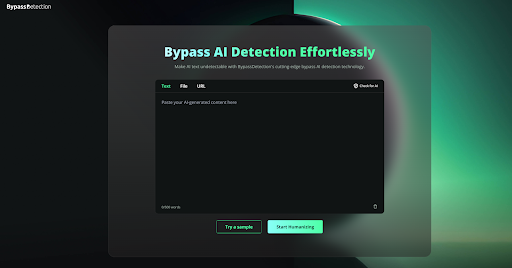The rise of Artificial Intelligence (AI) technology has brought tremendous advancements in various fields. However, it has also presented challenges, particularly when it comes to essay writing. Plagiarism and cheating have become rampant, prompting educators and institutions to rely on AI essay detectors to maintain academic integrity. Students, on the other hand, seek ways to bypass these detectors to gain an unfair advantage. In this review, we will explore Humbot, a tool that claims to bypass any AI essay detector, and discuss its implications for education and ethics.
Table of Contents
The Need for Essay Detectors
Before delving into Humbot, it is crucial to understand why essay detectors have become a necessity. In academic settings, originality and critical thinking are highly valued. Plagiarism undermines these principles. Thus, educational institutions have turned to AI essay detectors to identify copied or improperly cited work effectively. These tools are designed to analyze the content, structure, and references of an essay to determine its authenticity.
While essay detectors play an essential role in maintaining academic integrity, some argue that they hinder students’ originality and creativity. They believe that the focus on detecting plagiarism might overshadow the development of critical thinking and writing skills. Understanding both perspectives is important when evaluating tools like Humbot.
Humbot: An Overview
Humbot claims to be the ultimate solution for bypassing AI essay detectors. By employing advanced AI algorithms, it aims to evade detection by popular essay checking software. According to their website, Humbot offers a unique approach that can outsmart even the most sophisticated detection systems currently available.
The tool suggests that by using Humbot, students can submit essays with confidence, knowing they will not be flagged for potential plagiarism. It operates on the principle that AI essay detectors work by comparing submitted essays to a vast database of existing documents. By understanding how these systems analyze content, Humbot can allegedly manipulate the algorithm and render the essay undetectable.
You can learn more about Humbot here.
The Controversy Surrounding Humbot
The emergence of Humbot has sparked debates among educators, academics, and AI experts. On one hand, proponents argue that tools like Humbot empower students to focus on creative writing while ensuring that they are not unfairly penalized by overzealous essay detectors. They believe that students should have control over how their work is assessed and that eliminating the fear of false positives allows for a more balanced evaluation.
On the other hand, critics contend that Humbot promotes dishonesty and undermines the educational system’s integrity. They raise concerns that this tool caters to those seeking shortcuts rather than fostering critical thinking and academic growth. Additionally, they argue that bypassing essay detectors may perpetuate a cycle of dishonest behavior, ultimately devaluing legitimate achievements.
Ethical Implications
Addressing the ethical implications of using tools like Humbot is crucial. While the tool may appeal to students seeking assistance, it raises broader questions about the purpose of education and the values we want to instill in learners. Education, at its core, should encourage integrity, honesty, and originality. Bypassing essay detectors goes against these principles, promoting a culture of deceit and dishonesty.
It is important for students to recognize that knowledge acquisition and personal growth are more valuable than any short-term gain achieved through cheating. Institutions and educators need to create an environment that emphasizes the importance of integrity and helps students develop critical thinking and writing skills without the need for bypassing essay detectors.
While Humbot may promise an easy way out for students under pressure, it is crucial to consider the long-term consequences. Students who resort to such tools may miss out on the opportunity for genuine learning and personal development, both of which are integral to academic success.
Conclusion
In conclusion, the arrival of Humbot raises important questions about the role of AI essay detectors and their impact on education. While the tool claims to bypass any AI essay detector, it brings with it significant ethical concerns. Students should prioritize their personal growth and genuine learning experience rather than resorting to dishonest practices.
Academic institutions must continue to evolve their approaches to teaching and assessment to foster honesty, integrity, and critical thinking. Combining advanced AI essay detectors with effective instruction on proper citation and critical analysis can strike a balance between preventing plagiarism and encouraging originality.
As the education landscape continues to adapt to technological advancements, it is crucial to reflect on the purpose and values of education. Ultimately, the responsibility lies not only with tool developers but also with educators, institutions, and students themselves to uphold the integrity of the educational process, ensuring a fair and enriching learning environment for all.





